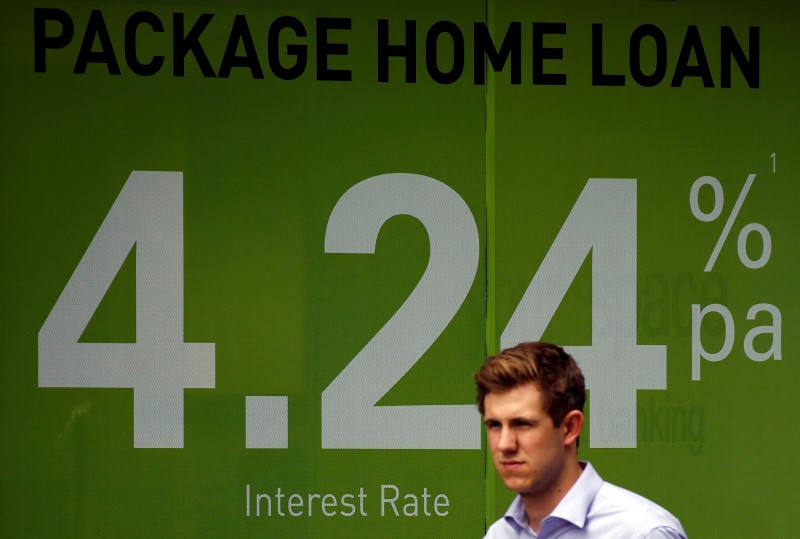* APRA wants to promote higher-than-normal degree of prudence
* Says recent measures not aimed at determining housing prices
* Looking at bolstering capital levels at the banks (Adds comments from APRA chair on capital levels, quotes from banks, analyst)
By Jamie Freed and Swati Pandey
SYDNEY, April 5 (Reuters) - Australia's banking watchdog said on Wednesday that authorities can and will take further action if needed to stop a debt-fuelled bubble in the country's red-hot housing market.
Wayne Byres, chairman of the Australian Prudential (LON:PRU) Regulatory Authority (APRA), said measures announced last week were aimed at promoting prudent lending and borrowing practices, and not to influence housing prices.
Housing has become a political hot potato and have dominated newspaper headlines recently, with prices in Sydney skyrocketing almost 20 percent a year, having more than doubled since 2008. In Melbourne, they are racing at nearly 16 percent. feverish pace of price increases prompted APRA to announce measures asking banks to limit new interest-only loans to 30 percent of total new mortgages, from 40 percent now. It also demanded that banks limit investor credit to "comfortably remain below" a previously set cap of 10 percent annual growth. latest step is a tactical response to current market conditions - we can and will do more, or less, as conditions evolve," he said at an industry conference in Sydney.
"Our role in the current environment is to promote a higher-than-normal degree of prudence - definitely by lenders and, ideally, also borrowers - in both credit decisions and balance sheet strength."
Just this week, Australia's corporate watchdog joined the fray, introducing a new round of industry surveillance to ensure banks and brokers were not recommending overly expensive interest-only loans to customers. measures come as regulators grow increasingly worried about a run-up in borrowing at a time when household debt is already at record highs, risking a damaging pullback in home prices.
Australian banks are among the world's most profitable lenders with strong capital levels. They emerged out of the global financial crisis relatively unscathed and regulators want to ensure they remain safe.
Banks have largely welcomed the recent measures.
"I don't think any of us want to see house prices going backwards but more a leveling off of the trajectory would be a good thing," said Catriona Noble, Managing Director, Retail, ANZ. "The 30 percent cap is good and... we can manage that."
"UNQUESTIONABLY STRONG"
APRA was also looking at bolstering capital levels to ensure major banks are "unquestionably strong" to withstand a repeat of the global financial crisis. It had held off a decision on implementing new measures until an agreement was reached in Basel for global lenders. Although Basel has now extended its deadline APRA is pushing ahead.
"It is important to remember that neither we nor the banking industry has stood still in the meantime," Byres said.
"Without clarity as to a deadline for an agreement in Basel, we have decided it does not make sense to wait any longer to deal with the question of 'unquestionably strong'."
Byres expects APRA to announce new capital rules by mid-2017 and analysts say it is increasingly likely the watchdog will introduce tighter rules on assessing mortgage risk.
"We believe a combination of macro prudential measures and higher risk weights could be viewed positively by APRA, the central bank and the government," said Richard Wiles, analyst at Morgan Stanley (NYSE:MS).
"Higher capital requirements and slower investor property loan growth would enhance financial stability," Wiles said, while higher mortgage rates for property investors "may remove the case for RBA rate hikes."
On Tuesday, the Reserve Bank of Australia (RBA) held interest rates steady at a record low 1.50 percent for the eighth straight month.
